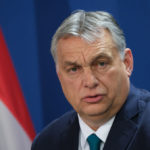Category: REGIONS
Why the American Public is Less Polarized on Foreign Policy
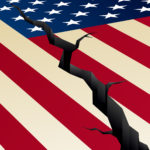
Matthew Rochat argues that though the American public has grown increasingly divided on issues of domestic politics, foreign policy has not been subjected to the same level of political polarization. He explains why in his analysis for the Foreign Policy Project.
Radioactive Consequences of a War in Ukraine

Rico Chandra provides insight on how a war in Ukraine could lead to thousands of radioactive sources getting lost, or worse, getting stolen and repurposed for political destabilization.
Black Mirror Statecraft: Combating PRC Hostile Social Manipulation and Sharp Power in an Era of Great Power Competition

Jonathan Lushenko provides his insight on what he terms Black Mirror Statecraft to describe China’s sharp power through hostile social manipulation to exploit democratic ideals of free speech and press to weaken the Liberal International Order in pursuit of broader PRC objectives. Lushenko offers policy prescriptions for the U.S. to enhance its public diplomacy and strategic communications efforts to counter the PRC’s Black Mirror Statecraft.
Belarus’s Weaponization of Migration Should Make Us Reevaluate the Extent of Crimes Against Humanity and Human Rights
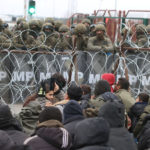
Peter Pinto provides his perspective on the Belarus migration crisis and whether it constitutes a crime against humanity.
President Biden: Try for a Double Play on Iran and Afghanistan
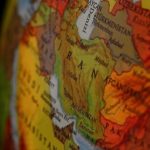
As the US and Iran navigate through the current impasse in restoring the nuclear deal amid the Taliban takeover of Afghanistan, Jon Greenwald provides his views on how these concurrent challenges justify a new strategy for dealing with them that cuts across both situations.
Afghanistan: Before Time Runs Out
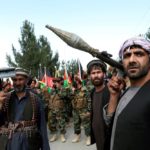
As the Taliban inch closer toward retaking Afghanistan amid U.S. withdrawal, the International Republican Institute’s Owen Kirby provides analysis on how the U.S. and its partners can be helpful to the Afghan government with non-military assistance, while recognizing the reality on the ground.
Amidst Disinformation and Geopolitical Rivalry, Bulgaria Returns to the Polls July 11th

As Bulgarians head to the polls on July 11th for the second time within the span of a few months, Dr. Kjell Engelbrekt provides analysis on why the formation of a new and sustainable coalition government is unlikely.
Strengthening Regional Stability Through the Ulaanbaatar Dialogue
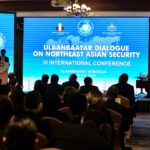
Ms. Bolor Zorigt provides insights on why the Ulaanbaatar Dialogue on Northeast Asian Security has the potential to expand to be a meaningful regional vehicle for peace and diplomacy and how Mongolia can help lead those efforts.
Israel-Palestine: Renaissance of a Two-State Solution

Jon Greenwald provides his perspective on the prospects for a two-state solution as the result of greater interest in Palestinian rights following recent events in the region.
The U.S. and Hungary: Friends in Need of a Better Way
